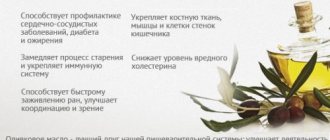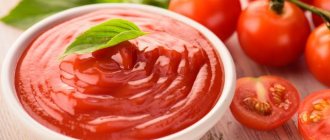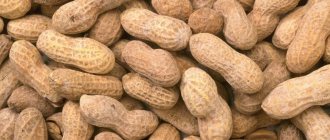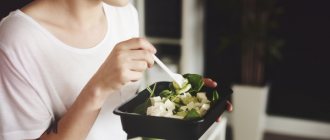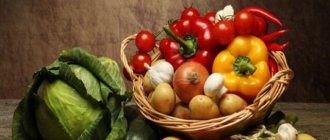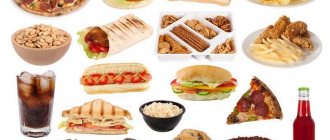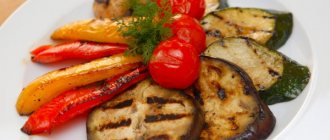Medical editor: Zemereva N.Yu., physiotherapist
If you eat food that is of poor quality or improperly prepared, symptoms of food poisoning or foodborne illness may occur.
The disease is caused not by the pathogenic microbes themselves that are found in food products, but by substances formed during their vital activity and which are toxic to humans.
A diet for food poisoning will help quickly overcome the disease and help a person “get back on track.”
Products allowed for food poisoning
The diet for food poisoning, as mentioned above, is expanded gradually.
The food must contain the required amount of proteins, mostly of animal origin, since they are the ones needed for the construction of new cells and the regeneration of the mucous membranes of the digestive tract.
Complex carbohydrates are also necessary, but only in processed form: compotes, jelly from sweet fruits and berries. They are involved in the production of glycogen in the liver, thereby enhancing its detoxifying function.
Don't forget about vitamins. Ascorbic acid stimulates the body's defenses, strengthens vascular walls, and ensures the integrity of mucosal epithelial cells. Vitamins A and E are necessary in the fight against free radicals formed during inflammation. B vitamins are needed for normal digestion.
The list of permitted products includes:
- weak or secondary (the first water after boiling is drained) broths from meat, fish and poultry;
- slimy soups from semolina, rice, oatmeal, after the 3rd day you can add a milk-egg mixture, cream or butter to them;
- lean meats and poultry (without skin) rolled and boiled (rabbit, “white” chicken meat, veal, beef): meatballs, soufflé, steamed cutlets - on the 4-5th day;
- low-fat fish in the form of steam soufflé;
- pureed porridge from rice, buckwheat, oatmeal;
- low-fat milk, non-sour pureed cottage cheese;
- soft-boiled eggs or steam omelettes;
- butter in small quantities or vegetable oil for the finished dish;
- wheat bread croutons, crackers, biscuits;
- compotes, jelly, jellies, mousses from sweet fruits and berries;
- natural juices with sugar, diluted with water 1:1, weak tea with milk, water acidified with lemon, rosehip decoction, dried fruit compote, dill water.
What should be the diet after poisoning?
The diet after poisoning should be gentle. On the first day, doctors do not recommend eating anything. To maintain a normal amount of fluid in the body, you should drink clean water or special saline solutions. Let's take a closer look at what you eat after poisoning, day by day.
Filtrum is a quick remedy for the treatment of diarrhea of any etiology (infectious diarrhea - loperamide is contraindicated, parasitic or rotavirus infection - antibiotics are useless, activated carbon is ineffective)
What can you eat next?
Second day:
- rye bread crackers (2-3 pcs.);
- vegetable broth (150-250 ml.);
- liquid puree (up to 100 ml.).
You need to drink up to two liters of fluid per day. Both ordinary boiled water and rosehip decoction, alkaline water without gas or pharmaceutical solutions are suitable. You should avoid sugary carbonated drinks and dairy products.
The third day:
- warm vegetable puree (200-300 ml.);
- crackers (2 pcs.) or biscuits (2 pcs.);
- rice or wheat porridge (250-350 gr.).
On the third day, doctors recommend introducing cereals into the diet.
Fourth day:
- chicken broth (100-200 ml.);
- boiled fish without bones (50-100 g);
- semolina casserole (150 gr.);
- wheat porridge without salt (150 gr.);
- rye bread croutons (2-3 pcs.).
From the next day, you can expand the list of products by adding small quantities of lean meats and fish, boiled or stewed. When preparing the broth, add a little salt to the water and add some herbs and spices.
Fifth day:
- broth with meatballs (250-350ml.);
- boiled rice without oil (250 gr.);
- rye bread crackers (5 pcs.);
- cottage cheese soufflé casserole (150-200 gr.).
On the fifth day, the diet is supplemented with cottage cheese and meat dishes.
Prohibited Products
The list of prohibited foods is huge, you can only reassure yourself that you don’t need to follow the diet for long.
All foods that increase the secretion of gastric juice, pancreas and duodenum are excluded from the diet in order to reduce the irritating effect of hydrochloric acid and enzymes on the mucous membranes of the digestive tract.
You should also avoid all natural and, of course, synthetic irritants. Excessively salty and spicy foods, foods rich in essential oils and organic acids are not allowed.
Complex carbohydrates contained in plant fiber are prohibited. They increase the load on the digestive tract, enhance fermentation processes, which irritate its mucous membranes, causing bloating and pain.
In the first days of therapeutic nutrition after food poisoning, fats are limited, since the body spends a significant part of energy on their breakdown; in addition, they, enveloping the mucous membranes of the stomach and intestines, slow down the absorption of nutrients and increase the symptoms of dyspepsia (vomiting, diarrhea).
The list of prohibited items includes:
- bread and all baked goods;
- rich broths and complex soups (borscht, okroshka, rassolnik);
- fatty meats, fish and poultry, as well as stringy meat;
- any canned food;
- mushrooms in any form;
- all vegetables;
- sausages;
- fast food and convenience foods;
- cheeses, sour cream and all fermented milk products;
- coarse cereals: pearl barley, barley, corn;
- legumes (canned green peas with caution);
- pickles, smoked meats, marinades;
- vinegar, horseradish, pepper, spicy seasonings, mustard;
- sour fruits, berries and fresh vegetables (radish, radish, sorrel, currants, green apples, etc.);
- concentrated juices, strong tea, coffee, cocoa, sweet carbonated drinks;
- sauces (ketchup, mayonnaise).
Authorized Products
The diet for acute food poisoning includes the following in the diet:
- slimy soups made from rice, oatmeal and semolina in water or weak vegetable/chicken broth;
- lean dietary poultry meat without skin, rabbit in the form of steam cutlets, minced meat, meatballs;
- lean boiled white fish;
- white croutons, crackers, biscuits;
- soft-boiled eggs/steamed omelettes;
- pureed porridges from rice, oatmeal, buckwheat;
- pureed low-fat cottage cheese, fermented milk products;
- butter as an additive to prepared dishes;
- jelly, dried fruit compotes, jelly;
- freshly squeezed fruit juices diluted with water, green tea, dill water, rosehip infusion, herbal teas with chamomile, thyme, sage, still mineral water.
Table of permitted products
| Proteins, g | Fats, g | Carbohydrates, g | Calories, kcal | |
Vegetables and greens | ||||
| zucchini | 0,6 | 0,3 | 4,6 | 24 |
| carrot | 1,3 | 0,1 | 6,9 | 32 |
| beet | 1,5 | 0,1 | 8,8 | 40 |
| celery | 0,9 | 0,1 | 2,1 | 12 |
| pumpkin | 1,3 | 0,3 | 7,7 | 28 |
| horseradish | 3,2 | 0,4 | 10,5 | 56 |
| sorrel | 1,5 | 0,3 | 2,9 | 19 |
Fruits | ||||
| apricots | 0,9 | 0,1 | 10,8 | 41 |
| avocado | 2,0 | 20,0 | 7,4 | 208 |
| oranges | 0,9 | 0,2 | 8,1 | 36 |
| watermelon | 0,6 | 0,1 | 5,8 | 25 |
| bananas | 1,5 | 0,2 | 21,8 | 95 |
| melon | 0,6 | 0,3 | 7,4 | 33 |
| lime | 0,9 | 0,1 | 3,0 | 16 |
| tangerines | 0,8 | 0,2 | 7,5 | 33 |
| plums | 0,8 | 0,3 | 9,6 | 42 |
| apples | 0,4 | 0,4 | 9,8 | 47 |
Berries | ||||
| cowberry | 0,7 | 0,5 | 9,6 | 43 |
| strawberry | 0,8 | 0,4 | 7,5 | 41 |
| cranberry | 0,5 | 0,0 | 6,8 | 26 |
| sea buckthorn | 1,2 | 5,4 | 5,7 | 82 |
| currant | 1,0 | 0,4 | 7,5 | 43 |
| rose hip | 1,6 | 0,0 | 14,0 | 51 |
Nuts and dried fruits | ||||
| raisin | 2,9 | 0,6 | 66,0 | 264 |
Cereals and porridges | ||||
| buckwheat (kernel) | 12,6 | 3,3 | 62,1 | 313 |
| cereals | 11,9 | 7,2 | 69,3 | 366 |
| white rice | 6,7 | 0,7 | 78,9 | 344 |
Bakery products | ||||
| white bread crackers | 11,2 | 1,4 | 72,2 | 331 |
Confectionery | ||||
| fruit and berry marmalade | 0,4 | 0,0 | 76,6 | 293 |
Raw materials and seasonings | ||||
| mustard | 5,7 | 6,4 | 22,0 | 162 |
| honey | 0,8 | 0,0 | 81,5 | 329 |
| milk sauce | 2,0 | 7,1 | 5,2 | 84 |
| sour cream sauce | 1,9 | 5,7 | 5,2 | 78 |
Dairy | ||||
| kefir 1% | 2,8 | 1,0 | 4,0 | 40 |
| curdled milk | 2,9 | 2,5 | 4,1 | 53 |
| acidophilus | 2,8 | 3,2 | 3,8 | 57 |
| yogurt | 4,3 | 2,0 | 6,2 | 60 |
Cheeses and cottage cheese | ||||
| cottage cheese 0.6% (low fat) | 18,0 | 0,6 | 1,8 | 88 |
Meat products | ||||
| boiled beef | 25,8 | 16,8 | 0,0 | 254 |
| boiled veal | 30,7 | 0,9 | 0,0 | 131 |
| rabbit | 21,0 | 8,0 | 0,0 | 156 |
Bird | ||||
| boiled chicken | 25,2 | 7,4 | 0,0 | 170 |
| turkey | 19,2 | 0,7 | 0,0 | 84 |
Eggs | ||||
| chicken eggs | 12,7 | 10,9 | 0,7 | 157 |
Fish and seafood | ||||
| black caviar | 28,0 | 9,7 | 0,0 | 203 |
Oils and fats | ||||
| peasant unsalted butter | 1,0 | 72,5 | 1,4 | 662 |
| corn oil | 0,0 | 99,9 | 0,0 | 899 |
| olive oil | 0,0 | 99,8 | 0,0 | 898 |
| sunflower oil | 0,0 | 99,9 | 0,0 | 899 |
| ghee | 0,2 | 99,0 | 0,0 | 892 |
Non-alcoholic drinks | ||||
| lingonberry juice | 0,1 | 0,0 | 10,7 | 41 |
| green tea | 0,0 | 0,0 | 0,0 | — |
Juices and compotes | ||||
| apricot juice | 0,9 | 0,1 | 9,0 | 38 |
| pumpkin juice | 0,0 | 0,0 | 9,0 | 38 |
| rose hip juice | 0,1 | 0,0 | 17,6 | 70 |
| * data is per 100 g of product | ||||
Basic rules of nutrition for food poisoning
The purpose of the diet for food poisoning is to ensure maximum comfort of the digestive tract, which is achieved by chemical, mechanical and thermal sparing.
During poisoning, diarrhea and vomiting occur, often uncontrollable, therefore the objectives of therapeutic nutrition are:
- restoration of electrolyte balance;
- reduction of dehydration and inflammatory reaction of the gastrointestinal tract;
- acceleration of mucosal healing processes.
Among other things, it is necessary to replenish the body with proteins, vitamins and minerals.
According to the Pevzner classification, the diet for food poisoning is treatment table No. 1a.
Daily requirement of proteins, fats and carbohydrates:
- fats – 80-90g, of which at least 20% vegetable fats;
- proteins – 80g, of which up to 60-70% are proteins of animal origin;
- carbohydrates – 200g.
Due to the restriction of nutrients in case of food poisoning to the lower limit of the physiological norm, the daily calorie content of the diet is 1900-2000 kilocalories.
Basic principles
Diet. Meals should be fractional, up to 6-7 times a day. In the first three days, the volume of food is 150-200 ml, then gradually increases. Frequent meals in small portions reduce the load on the irritated mucous membrane of the digestive tract, allow food to be absorbed, which is quite problematic with diarrhea and vomiting, gradually stimulate the appetite and activate the digestive tract.
Drinking regime. In case of food poisoning, it is very important to maintain a drinking regime. You should take at least 2 liters of fluid per day. Firstly, it helps remove toxins from the body, and secondly, it restores the volume of the vascular bed and prevents dehydration. On the first day after poisoning, it is better to avoid eating altogether and only drink. The liquid is taken in small portions (50-100 ml) every 30 minutes, since large volumes of drinking provoke vomiting. You can use boiled or mineral water without gas, as well as special solutions from powders (“Hydrolit”, “Oralit”, “Regidron”).
Culinary processing. Considering that the diet should provide mechanical sparing of the gastrointestinal tract, the food must contain boiled or steamed dishes in a mashed or pureed state. The minced meat is turned twice. Thus, the load on the stomach and all digestive organs is significantly reduced, they work in an economical mode, and nutrients are better absorbed. In addition, you must chew your food thoroughly.
Temperature conditions. Food and liquid consumed must be served warm (15-50°C). Food that is too cold or too hot causes reflex spasms of the sphincters of the stomach and esophagus and promotes vomiting. In addition, cold or hot food irritates the damaged epithelium of the digestive tract and slows down regeneration.
Salt. Table salt consumption is somewhat limited: up to 6-8g per day. Too salty food and drink irritate the gastrointestinal tract and prevent the restoration of its mucous membranes.
Alcohol. During treatment, especially in the first week, when the diet is strict, the consumption of any alcoholic beverages is prohibited. Alcohol has an irritating effect on the digestive organs, interferes with regeneration processes, and provokes vomiting. If this condition is not met, the liver and kidneys, which were particularly damaged during the attack by food toxins, will begin to function even worse.
Duration of the diet. The duration of a strict diet is approximately 4-7 days. The return to normal nutrition is carried out gradually and with caution: one or two new dishes/products are introduced per day.
Features of nutrition after poisoning
Doctors recommend following a diet after poisoning: eat small portions of food five to seven times a day, and if you feel better, up to four times. Dishes must be warm. It is not recommended to eat cold or hot food.
The total amount of food in the first 2 to 3 days should be less than usual. Subsequently, you should also not overeat. If you experience heaviness in the abdomen, the urge to vomit, or loose stools, you should inform your doctor. As a rule, on the fifth day, your health is completely restored, and you can return to your usual diet.
After poisoning, the drug Filtrum effectively restores digestion. This is a natural sorbent used to remove toxins and bacteria from the human body. Indications for its use:
- dysentery, dysbacteriosis, dyspepsia, food poisoning;
- all types of food and alcohol poisoning;
- inflammatory diseases of the digestive system;
- food, drug and other forms of allergies;
- poisoning with poisons, plant alkaloids, metal salts;
- chronic intoxication in people with hazardous working conditions.
The duration of therapy with Filtrum for acute poisoning is five days; for other diseases it is determined individually and can reach 3 weeks. The drug is taken orally. It is recommended to first grind it to a powder state. The medicine should be taken with water, and then do not eat for an hour. The dosage of Filtrum depends on the age of the patient: up to one year - ½ tablet, from one to seven years - one, from seven to 12 years - two, from 12 years and older - three tablets per dose. The frequency of taking the drug is three to four times a day.
